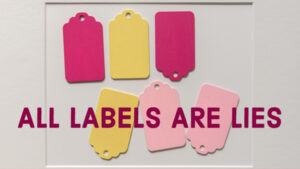Letting go is natural. But we’ve been trained to use our minds in a very unnatural way to keep the illusion alive. It all began with the all-pervasive psychological reversal, the belief that a thought is true if it generates emotions. It caused us to believe in emotionally heavy problems, injustice, war, suffering, and disease. Once we believe these things exist, we see them. Without that psychological reversal, all unwanted things would disappear. Instead of healing the psychological reversal, we try to prevent our fears from manifesting, try to make peace with what we’ve already manifested, and try to release all the emotions we’ve generated.
Therapy and Self-Help
In therapy, people talk about their problems. They go back to their past to understand what happened or to discover why they feel like they do. They justify their emotions or train themselves to no longer feel them. Therapy rarely invokes letting go.
During my early research days, I often turned on the Dr. Phil show in the afternoons for a break. I thought it would support my efforts. It didn’t. It created unrelenting emotions within me. Dr. Phil projects his moral, religious viewpoint into the world — right and wrong, good and evil. He fixes his massive projections on the show. He sees a reward-and-punishment world. He believes the past creates the future. As I moved toward my True Self, my body signaled the error in his divided point of view. I came to realize that Dr. Phil only felt emotion when he was bad according to the Christian definition of good and bad; I felt emotion around both sides of the bottom of the triangle.
In self-help, people put ice-cream on their manure. They get their anger out, or they make peace with their shadow. If you let go, you no longer have anger or a shadow. You don’t need the ice cream. In self-help, people try to drop their ego, but they don’t even know what their ego is. Most are trying to drop their True Self. Trying to fix ourselves hasn’t worked because we aren’t broken.
I can explain anything that happened to anyone in five words: “THEY FELL INTO THE ILLUSION.” Nothing can happen to any of us without first accepting an illusory belief or putting a false self above us as our authority.
Therapy and self-help rarely find the causal belief because they’re focused on causal incidents. They falsely assume that our emotions come from actions, events, and trauma. They don’t realize that our emotions come from our own beliefs or believing another’s thoughts; we start accepting beliefs in our mother’s womb. It looks like we’re born with original sin. We might get the fallen illusory viewpoint early in life, but it isn’t who we truly are. I suspect that’s why babies come out screaming.
When we’re truly free of a past belief, we recognize how we perpetuated it. Every time the belief entered our conscious mind, we felt emotion. We believed that the nervous agitation meant the thought/belief was true. So we ran from it. We didn’t turn and face it and say, “You are not true.” Humans might face fears on the outside by doing dangerous activities or telling their wife they had an affair; but they rarely face their fears on the inside where it truly matters.
Therapy creates comfort in the illusion. When the illusion’s drama gets too hot, therapy cools things down. Self-help helps us win. When we feel defeated, self-help beefs up our will. Occasionally, therapy or self-help cause someone to let go; but it’s usually an accident.
Drama
To create drama, we think false thoughts. When those thoughts manifest, we blame others. We avoid responsibility for our minds and creations. We keep our focus outward. We even expect others to fix our emotions.
Mom feels lonely; she wants us to visit. She thinks she has no purpose; she’s not loved. She’s memorializing the past. She’s repeatedly thinking false thoughts that generate emotion. If she let them go, she wouldn’t need us to fix them. The people in our life don’t realize that their emotions are caused by their own thinking. When we let go, we find out how codependent we really were. We find out why we weren’t living our life.
The Dreaded Plateau
Therapy and self-help are attractive because they don’t discriminate between true and false. People often plateau in initiation because they want to keep someone else on the hook, they don’t want to let go of their projections, or there’s a part of the illusion they like. They want the criminal punished. They’re sure their child is lazy. They don’t want to let go of competition because they think it makes sports fun. They love Christmas and look forward to the excitement of the holidays. They want the money their traditional medicine career provides. They love going to self-help workshops. They fear losing their hot boyfriend. All of their friends are Christian. Therapy and self-help don’t put such things at risk, but letting go does. Or so we think…
We don’t have to give up anything outer by letting go. We’re just letting go of false perspectives. We stop wanting justice for illusory errors. We drop competing, not sports. We buy gifts and decorate our house with lights anytime. We become a healer who drops labels instead of creating them. We go to creative workshops instead of self-help. We realize that if hot boyfriend doesn’t like our True Self, he’s wrong for us. We see goodness in all people, not just our fellow church members.
Our false mind says that we’ll lose something we think we need or love by letting go, but it’s lying. We can’t screw up by letting go. We can’t lose. Losing things that weren’t right for us is winning. If something is truly ours, we can’t lose it. And in my experience, if it wasn’t really mine, I didn’t miss it — not even a little. Freedom was infinitely better.




